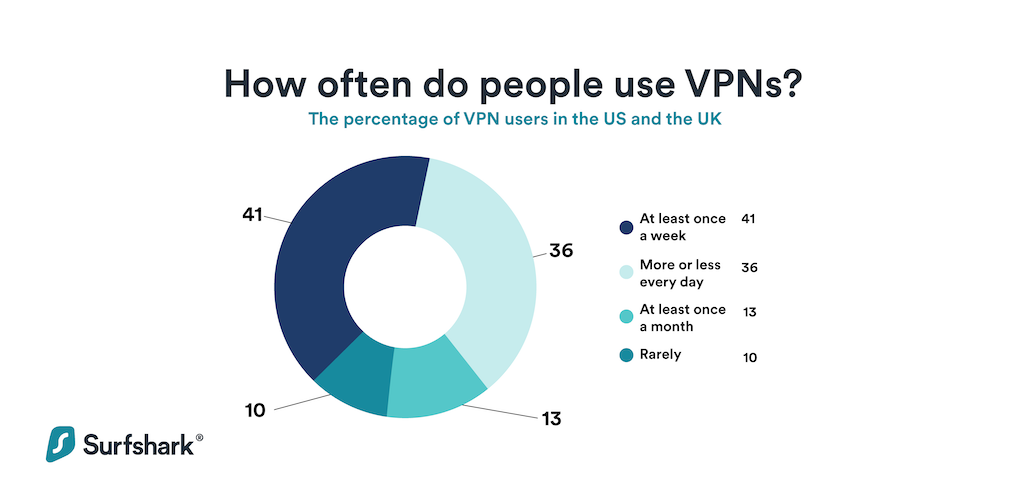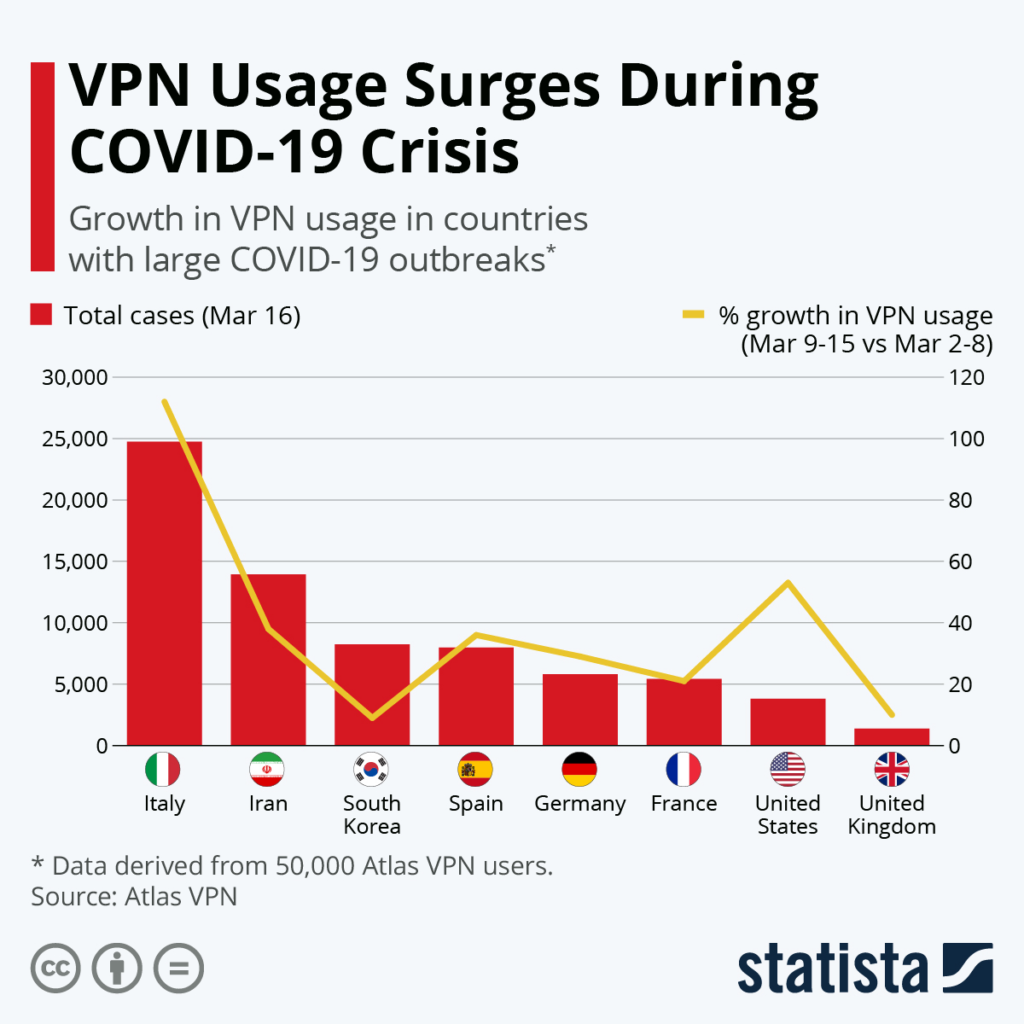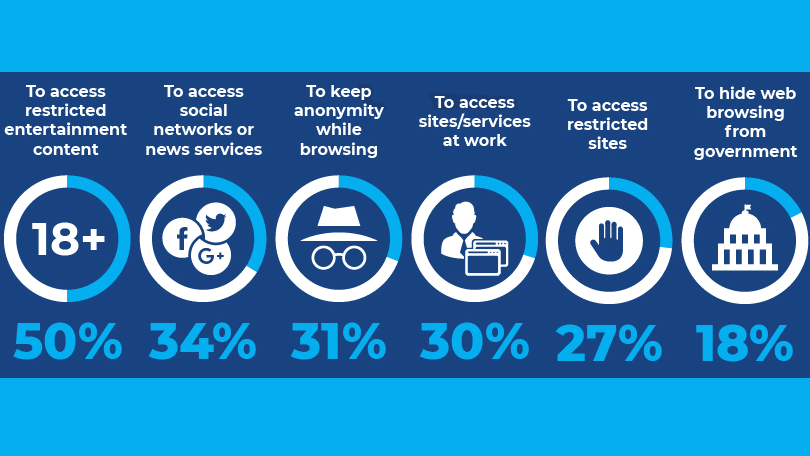VPNs have become massively popular over the course of the past year. The age of remote work and social distancing has led to many of us working and playing from the comfort of our homes, on our own networks. This trend has led to more of us considering the pros and cons of virtual private networks (VPNs), and their practical uses for home connectivity.
There are clear advantages to VPNs. They add a layer of protection to your online activities by setting up encrypted tunnels between yourself and anybody that may be keen on snooping on your private information. Many offices are likely to use VPNs to keep confidential data safe, while individuals could feel inclined to use virtual private networks in public WiFi spots as a means of staying safe from any cybercriminals lurking on the same connection.

(Image: Surfshark)
With VPN usage rising in the wake of the COVID-19 pandemic, let’s take a look at what the technology can do for you when browsing at home. Is it worth paying for a secure virtual private network? Or is a traditional internet connection sufficient at home? Let’s explore 3 key considerations:
Protecting Your Remote Work
Whether you’re an employee that’s begun working remotely since the start of the pandemic, or you’re a business owner who’s decided to abandon the office to operate on a fully work-from-home (WFH) basis, VPNs can do an excellent job in protecting your confidential information online.
Many industries deal with confidential information which would be very damaging to the organisation if it fell into the wrong hands. This calls for a VPN connection that would enable employees to access company services remotely in a much more secure manner.
Through the use of a virtual private network, employees have the ability to securely connect to an office server even when working from home or public spaces. This helps to encrypt information and make sure that your private data won’t be compromised by unsafe connections.

(Image: Statista)
As the table above shows, many businesses around the world acted quickly in adopting VPN usage as they adapted to the COVID-19 outbreak. As more companies embrace WFH as the pandemic subsides, it’s likely that we’ll see more home VPNs crop up as a means of securing employee connections and protecting data online.
Keep Your Browsing Activity Private
VPNs can also work wonders in keeping your browsing activity entirely private. While many browsers on traditional connections offer incognito modes that don’t record the websites you visit, all of your browsing information is there for your internet service provider, governmental bodies and possibly some third-party marketers to see. Add to this the growing number of cybercriminals that may be able to access your personal information from less secure connections and it may seem like you’re especially exposed online.
If you happen to live near a public WiFi spot, or share your connection with other residents, it could be even more imperative to utilise a VPN at home to ensure that your internet usage is as private as can be. If you regularly use public WiFi spots, your activity on non-HTTPS websites can be easy to track to everyone sharing your connection, if they know what they’re doing. By buying into a VPN, suddenly all anyone will be able to see is that someone is using a virtual private network – with no information surrounding what you’re doing and the websites you’re visiting.
However, if you’re eager to gain some privacy online, it’s important to do some research into the VPN providers that you’re planning to use. Although VPN connections bypass your internet service provider, some services choose to log your activity on their end – meaning that you may potentially still have somebody effectively monitoring your browsing. Be sure to check whether your VPN provider does this by conducting your fair share of due diligence.
Bolster Your Home Entertainment
Although we often associate VPNs with supreme privacy and security, it’s worth remembering that virtual private networks can be used for fun, too.

(Image: PC Mag)
As the data above shows, although the majority of VPN use cases tend to revolve around the application of privacy and anonymity, by far the most use cases for virtual private networks involve accessing restricted entertainment content.
With 50% of VPN use cases involving the act of accessing restricted content like geo-locked Netflix shows and movies, it’s clear that one of the biggest perks for users is the fact that they can stream what they want from the comfort of their own homes.
Although the use of a VPN to stream may seem a little counterintuitive – after all, adding an extra layer of encryption can lead to slightly slower download and upload speeds – it makes sense to broaden your prospects by using a virtual private network to open yourself up to content from all around the world without being confined to a specific region by a traditional ISP.
Gaining access to locked content can also extend to the world of gaming. Perhaps your local online store isn’t permitted to release a title until a certain date in the UK, despite the game already being available in the US. Using a VPN can break down this barrier and enable you to play earlier.
There are also cases where VPNs can be used to access blocked websites on local servers or social networks that have been outlawed by governmental regulations. By accessing a VPN server you can alter your location to access Facebook or international news websites as and when you wish.
As we become more accustomed to browsing the internet from home in the age of the COVID-19 pandemic, we may feel as though our internet service provider isn’t offering us sufficient security against potential cybercrime or individuals spying on our remote work. Although premium VPNs can cost money on top of your internet service, it can also provide truly private connections to enable you to browse in confidence at home. The fact that it can also bolster your entertainment prospects is just one of a few added benefits as part of the package.